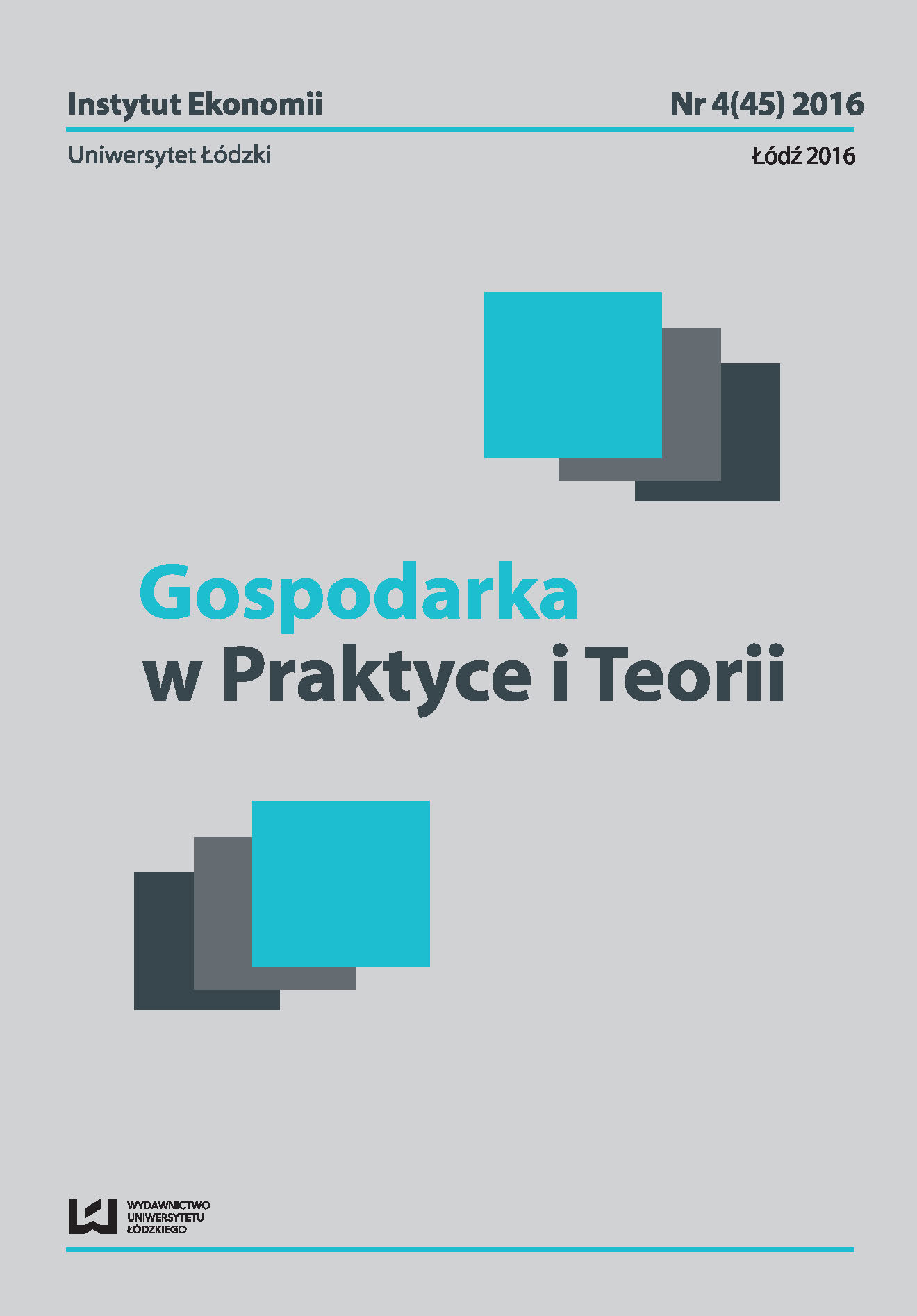Urban revitalization from an economic perspective theoretical reflections and their practical implications for revitalization projects
DOI:
https://doi.org/10.18778/1429-3730.45.05Keywords:
revitalization, urban economics, urban functionsAbstract
The economic perspective in the field of planning and governing cities has a tradition stretching back over two hundred years. This long period of time has allowed for the elaboration of a set of theses, assumptions and analytical perspectives, while at the same time enabling researchers to join them with other points of view concerning cities. The inclusion of this perspective remains particularly important in contemporary urban revitalization processes, which are characterized by the far-reaching diversity of urban users and urban ownership structures.
The paper identifies the key challenges for the professionals designing changes in urban spaces aimed at their renewal, while at the same time incorporating the economic perspective. Among them, one can mention primarily the necessity to identify the needs of the urban space users as a starting point for any actions taken; the ability to reach relevant target groups and to open up dialogue with them; and last but not least identification of both the functional and ownership urban structures. These challenges should be perceived as the prerequisite conditions to ensure the effectiveness and efficiency of urban revitalization projects. Moreover, in a wider sense this paper indicates the need to incorporate revitalization projects in the overall context of the urban economy, which involves strengthening of the economic base of towns and cities as well as the search for effective sources of financing urban development.
References
Alonso W., A Theory of the Urban Land Market, „Papers and Proceedings of the Regional Science Association”, vol. 6 (1), 1960, s. 149–158.
Google Scholar
Barca F., An Agenda for a Reformed Cohesion Policy. A place-Based Approach To Meeting European Union Challenges and Expectations, Independent Report prepared at the request of Danuta Hübner, Commissioner for Regional Policy, April 2009.
Google Scholar
Bury P., Markowski T., Regulski J., Podstawy ekonomiki miasta, Fundacja Rozwoju Przedsiębiorczości, Łódź 1993.
Google Scholar
Christaller W., Ośrodki centralne w Południowych Niemczech, „Przegląd Zagranicznej Literatury Geograficznej” 1963, z. 1.
Google Scholar
Edwards M.E., Regional and Urban Economics and Economic Development. Theory and Methods, Auerbach Publications, Taylor and Francis Group, New York 2007.
Google Scholar
Hoover E.M., Lokalizacja działalności gospodarczej, PWE, Warszawa 1962.
Google Scholar
Le Corbusier, La charte d’Athènes, 1933/1942, Editions Seuil Paris 1971.
Google Scholar
Lorens P., Definiowanie współczesnej przestrzeni publicznej, [w:] P. Lorens, J. Martyniuk-Pęczek (red.), Problemy kształtowania przestrzeni publicznych, Seria Miasto-Metropolia-Region, Wydawnictwo Urbanista, Gdańsk 2011.
Google Scholar
Majchrzak M., Gospodarka i polityka mieszkaniowa w gminach, [w:] A. Zalewski (red.), Nowe zarządzanie publiczne w polskim samorządzie terytorialnym, SGH, Warszawa 2007, s. 211–281.
Google Scholar
McCann Ph., Urban and Regional economics, Oxford University Press 2001.
Google Scholar
O’Sullivan A., Urban Economics, McGraw Hill-Irwin, Nowy Jork 2007.
Google Scholar
Regulski J., Planowanie miast, PWE, Warszawa 1986.
Google Scholar
Ricardo D., On the Principles of Political Economy and Taxation, Londyn 1817, rozdział II.
Google Scholar
Sokołowicz M.E., Zasina J., Ekonomia miasta, [w:] A. Nowakowska (red.), EkoMiasto#Gospodarka. Zrównoważony, inteligentny i partycypacyjny rozwój miasta, Wydawnictwo Uniwersytetu Łódzkiego, Łódź 2016, s. 43–68.
Google Scholar
Sokołowicz M.E., Rozwój terytorialny w świetle dorobku ekonomii instytucjonalnej. Przestrzeń – bliskość – instytucje, Wydawnictwo Uniwersytetu Łódzkiego, Łódź 2015.
Google Scholar
Thünen H.J., Der isolierte Stadt in Beziehungen auf Landwirtschaft und Nazionalökonomie, Hamburg 1863.
Google Scholar
Woźniak W., Komu służą megaprojekty? „Miasto Ł” 12.11.2016, http://lodzkagazeta.pl/komu-sluza-megaprojekty/ (dostęp: 19.11.2016).
Google Scholar








